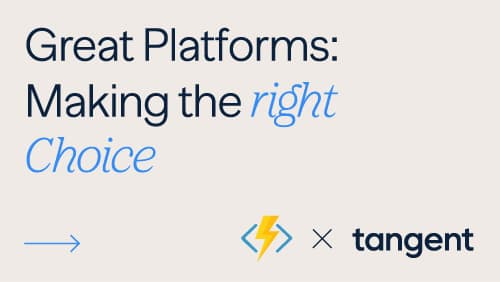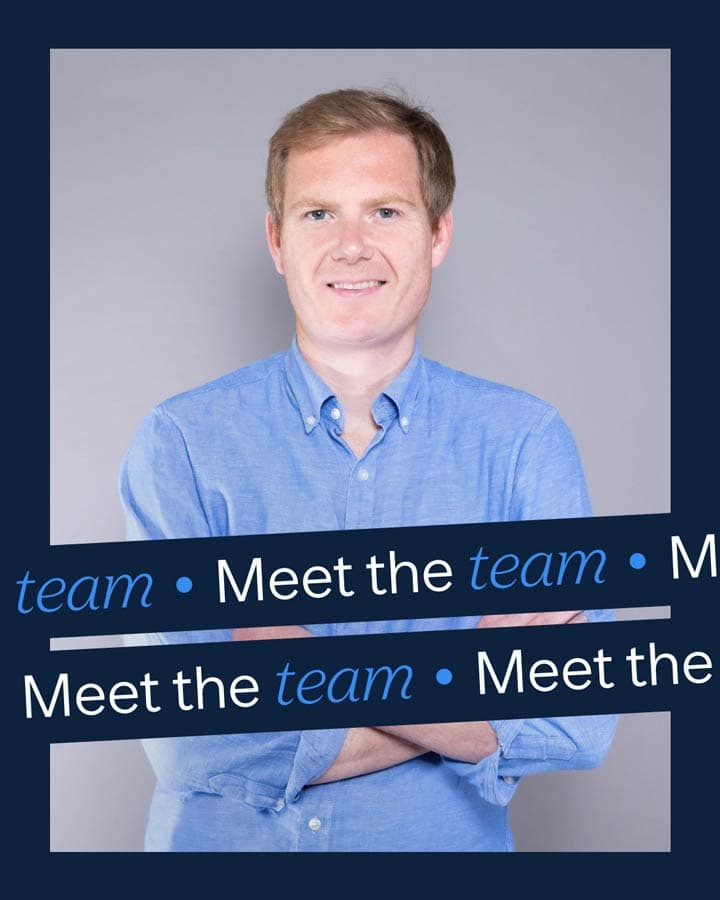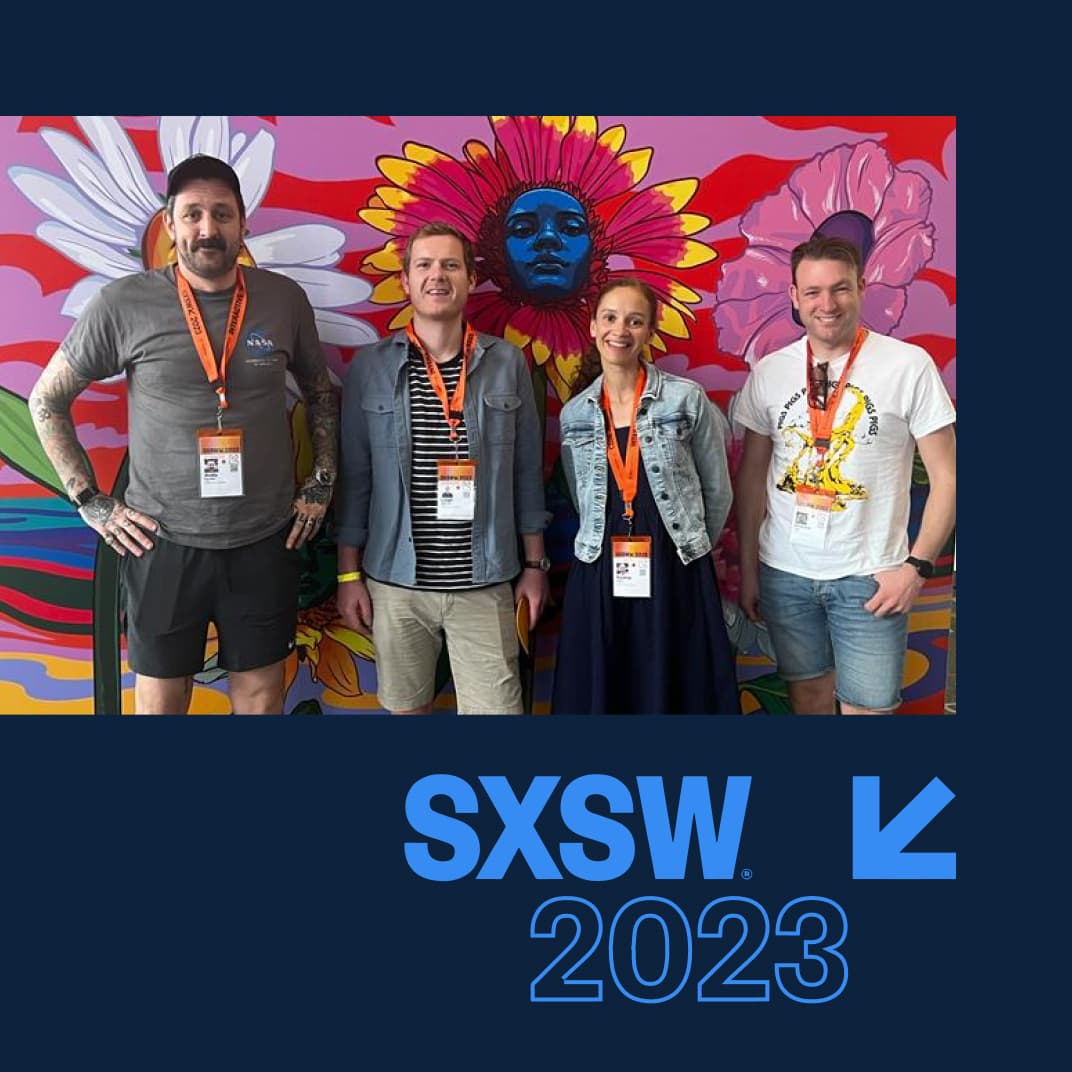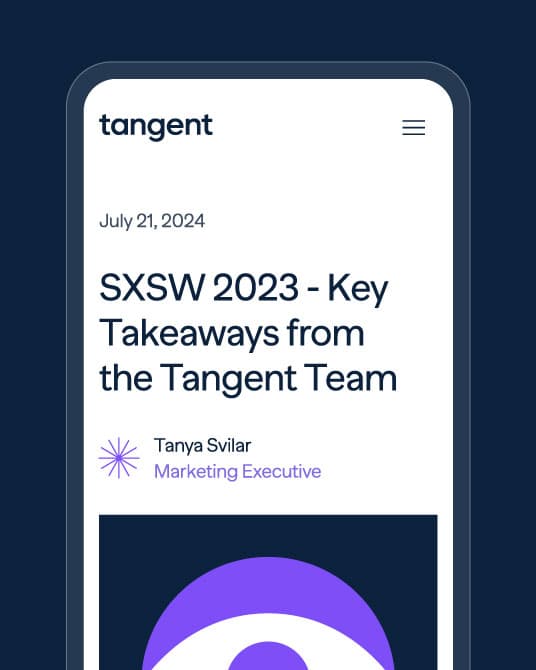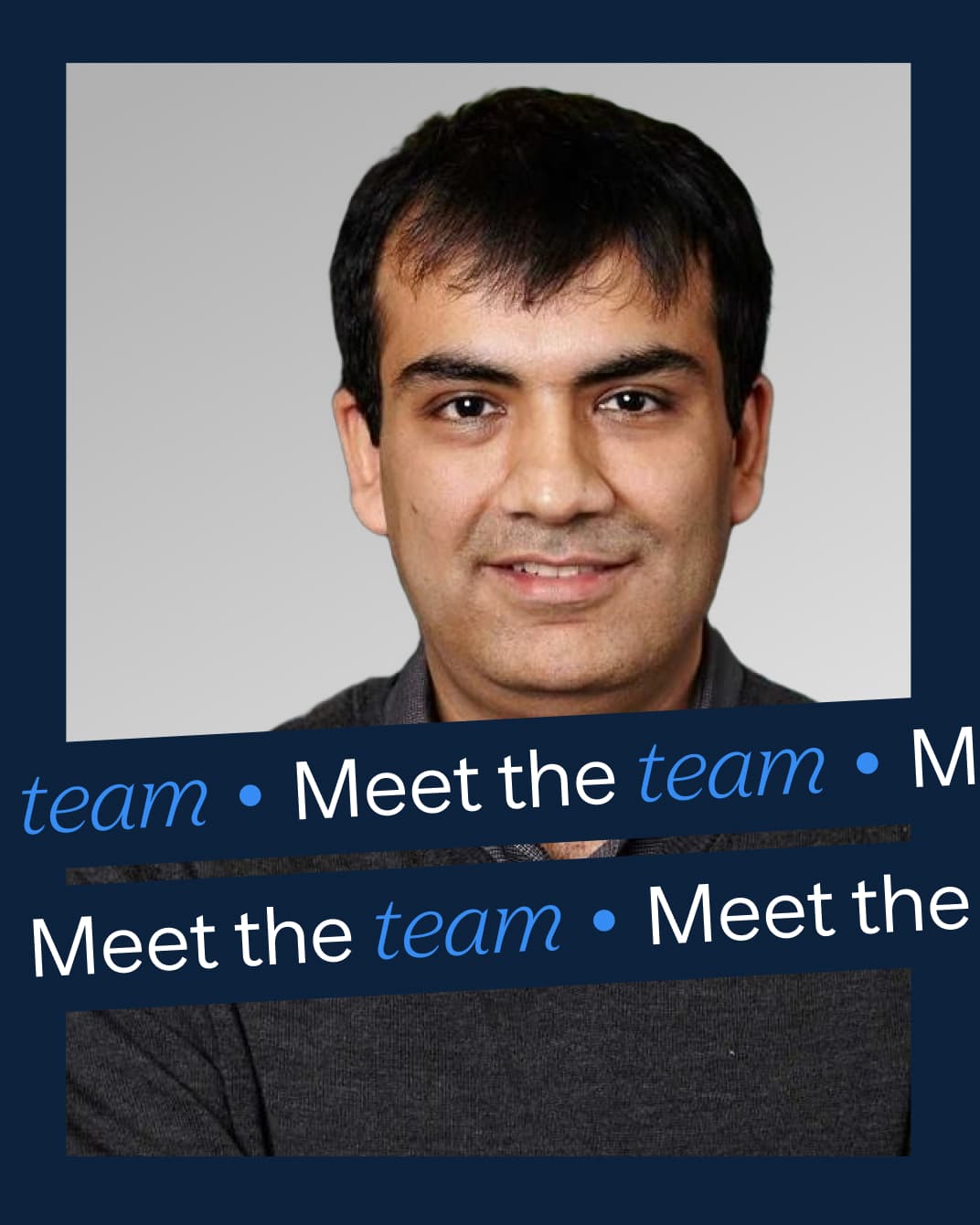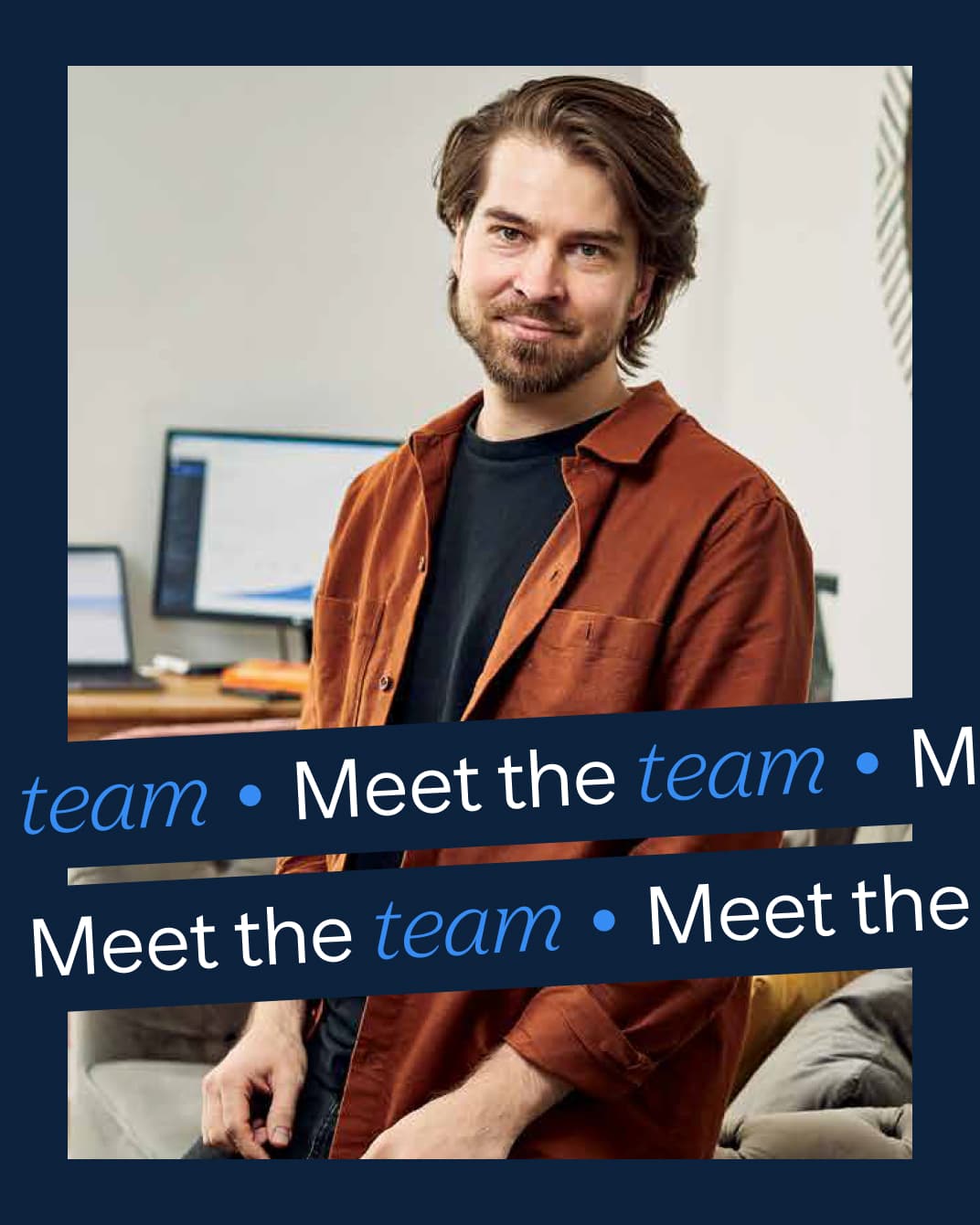
Here at Tangent, we’re in the business of digital products. But the conversation isn’t complete without considering the processes that make them happen, or the people behind it all.
In our new content series, we've been hearing from industry leaders about all things people, process and product in their business. Read on for the next instalment of interesting insight straight from digital leaders in conversation with Tangent’s Strategy Partner, Nadine Clarke.
In conversation this week is Vlad Kurochkin, Product Lead at Zopa, a challenger bank and FinTech game changer. Zopa was a pioneer of the peer-to-peer lending industry when it launched back in 2005, and has since gained a banking licence to to give people access to simpler, better-value loans and investments
People
Nadine: Would you describe Zopa as having a culture of innovation? What does Zopa do to encourage and inspire innovation?
Vlad: That’s the perfect question. So, historically, Zopa was the first company that was ever referred to as FinTech. About 13, almost 14 years ago, they came up with the concept of peer-to-peer investments and they were the first people doing that. Ever since, they’ve been showing that they’re a truly technologically innovative company. Zopa also creates value for customers as they’re not only focused on creating technological innovation, but also value innovation, which is really important. This is at the very core of our values at Zopa.
Recently, we’ve made this transition from being a P2P lender to becoming a challenger bank and launching a lot of new products. And when we're thinking about new products, we always think about what is the best thing we could do for our customers. So we focus our innovation not on the technology itself, but on innovation for the sake of creating value for the customer - and all of our internal values align with that goal. So I would say Zopa is an innovative company, but also innovative in the right way. It’s close to me as someone being passionate about customers.
Nadine: Bringing things back to COVID, how has the pandemic and remote working influenced or reshaped the thinking at Zopa? How has your team had to adapt?
Vlad: One thing that has definitely changed is the way we collaborate. In my team, we create a lot of products and work with a lot of new ideas. This obviously entails a lot of people getting in one room and doing design thinking workshops or just brainstorming. So it was really hard to imagine how we would do all that while working remotely. To be honest, it was all about just finding the right tools. For example, we started using Miro, which is a perfect tool for workshopping. We realised that in a way, we became even more effective and more efficient with how the workshops were run and how we stored all the ideas and things that came up during the workshops. I would say now we're doing a lot more workshops than we were before, now that the friction and barriers that came with having to run a physical workshop have been removed. Now, online you can reuse workshop templates and it's easy to save all of the outcomes.
Overall, I would say we became a lot more efficient as the result of being forced to work in a different way. There is a lot of interesting research that shows that if you shake people and you force them to do something differently, they will find more efficient ways to do that. That was an interesting transition for us.
Process
Nadine: How do you approach planning when we have no idea what might happen tomorrow/next week/in the next few months?
Vlad: In our company, we're trying to embrace the agile culture of innovation. The most important and the trickiest part is how do you set goals, so that you on one hand, make sure that all the teams are moving towards the same direction and helping to achieve the same strategic goal, but also that you allow for this kind of flexibility with the ever-changing environment, especially right now.
We’re trying to solve this by instead of committing to a roadmap of features or deliverables, we’re just saying to our teams, what the business goals are and how we're going to be measuring success within this area. From there, we allow the teams to be creative and agile and to work on understanding the environment, the users and the market to then adapt to this. Ultimately, success is not measured by delivering feature X or Y. It's measured by whether you're moving in the right direction.
Nadine: What have you learned about the process of developing digital products? How does this process work differently at Zopa? Why?
Vlad: I've been at Zopa for more than three years now and the approach is really characterised by collaboration and aligning on the agile process. The main difference between previous places I’ve worked is how at Zopa, we make an extreme effort to validate our assumptions before we actually execute an idea. This means always spending a little bit more time during the product discovery process to make sure that we have a pretty good understanding of customers and where assumptions are coming from, to then understand how we're going to validate them before we actually execute something.
In a lot of my previous experiences in different companies, it was more like ‘Oh, we believe we need to deliver this feature’. And we will just take it and run with it. And then hope it works.
Nadine: How do you keep up with constant updates to your product? And how do you cope with the pace of technology often moving faster than the business itself?
Vlad: I think it's a very good question. One of my teams works on the mobile app. Surprisingly, when I joined, we didn't even have a mobile app. We had a pretty big segment all just using a web version. So we identified this as an opportunity and released the mobile app a few years back and now the majority of our customer base are using the mobile app.
We try to stay on the same page with trends in technology and for example, a lot of the most recent initiatives are looking at open banking. With new trends and tech, we try to analyse it and understand how it can change the financial market, for example, by allowing customers to be more in control of their own finances. In that sense, because we're still a relatively small company with a smart way of setting up goals and this agility, I think that allows us to be more responsive to technological advances. If you compare us to a big bank, for example, they have to commit to a five-year plan. And then if the technology changes, it's very unlikely that their plans are going to change.
I think the most important thing for any company is to be on top of any market and technological change and also to have this agility embedded into how you set goals.
Nadine: I was going to ask about your favourite tool to use in the product development process but I think you may have already answered that…
Vlad: Yep, Miro is definitely the best one. It was the tool that saved us.
Product
Nadine: What are the top challenges of working with a digital product like yours? You mentioned the mobile app, so either that or any other products you’re working on? What are the top challenges?
Vlad: I think the top challenge for me (and for everyone) working in the FinTech industry is around regulation. If you compare this to, let's say, we’re creating a startup within a less regulated environment, you can just come up with an idea, release it and see how it works. But within a regulated environment such as FinTech, you have to be very clear on what type of risk you have - which goes back to the idea how we always validate risk at Zopa. Are you confident that you're not breaching any external or internal compliance policy?
However, to clarify, the main challenge is not having to do all of this thinking and alignment, but the main challenge is to subsequently adapt your mentality. If you take the example of a product manager, they always want for things to happen quickly. So the challenge there could be that because they have so many stakeholders to align with, they can see this as something prevents them from achieving their goal as quickly as possible.
On the other hand, you can have the mentality of ‘Oh, I have these people who are trying to help me to minimise the risks that I have, both to the company and to users.’ Stakeholders are people you collaborate with and who genuinely help you achieve better outcomes for your customers. For example, take the FCA - they would come and ask you to prove that your product is of the highest quality. They're not trying to make it hard for you to do your business. They're trying to make sure that people in the UK get a high quality product. No one is trying to play tricks on them.
Nadine: Going back to COVID-19 again, it obviously had an impact on every industry out there- be it negative or positive. For Zopa, how did you use this moment of impact to your industry to move any product along, or did it drive you to create something you'd never expected to? Did it inspire new product development that wouldn’t have happened otherwise?
Vlad: Actually yes. With some of our new products and initiatives, what we're trying to do is talk to our customers to try to understand what type of problems they have and how we might help them solve these problems. As a result of the pandemic, we prioritised two important directions. One was prioritised mid last year, when it all just started, where previously we had a relatively small amount of people who would struggle financially. When this happens, they would have to call Zopa and try to settle the debt through this contact.
Once COVID started, we effectively had a lot more people doing this - and not even all from a financially struggling perspective, but simply trying to understand what are the options for them and what they can do. So, we decided to spend a lot more time automating this process and making this experience self serviceable. We added a lot of features into the mobile app so customers can make changes and seek advice from within the app.
The pandemic meant we had to prioritise this work but ultimately it’s a good thing because when this is all over, there will still be people who will struggle financially and they’ll have all of these features available for them in the app.
The second part is, we have this new set of debt management initiatives that will be built using open banking. Ultimately, the goal of this is to allow our customers to feel a lot more in control of their debt and how to get help, because for a lot of our customers this kind of debt is just a fact of life. They have a couple of loans and a couple of credit cards with many providers (not only Zopa). In fact, the research we did showed that for a lot of the time for these people, it's hard to understand how much their debt is actually costing them. Having this kind of knowledge could be the leverage that they could use to be able to restructure their debt to make it cheaper and easier to manage. The pandemic helped us to prioritise this and overall trying to help our customers to feel more in control with their finances.
Nadine: What plans do you have for your digital products in 2021? Are there any new developments on the menu for Zopa that you could share with us?
Vlad: I can’t really go into specifics but I think we're going to continue to do two main things- the first being adding lots of new, financial products into our portfolio as a challenger bank. Last year, we launched credit cards for example. Secondly, we're going to be adding more high-engagement products, so not necessarily financial products, but personal finance management products, to help our customers to feel more in control of the finances that they have. To do this, we're going to be utilising open banking a lot more to allow our customers to achieve some of these outcomes and to be more in control of the finances - with us or any other provider.
Nadine: What future innovations would you like to see in the fintech space? What’s on your digital wishlist for your industry?
Vlad: Well, I do dream of the high level adoption of open banking because this will create a very important shift for customers. Right now, ultimately, big banks are playing the role of both your financial provider (i.e. someone who gives you a financial product), but who is also your trusted interface. However, open banking creates an opportunity for you to be able to choose what is the best interface for you as well as choosing what the best possible products are for you.
Currently, the system works like- for example, you might only trust Lloyds because you've been with them for 10 years. This could make you not want to go anywhere else. But what open banking creates is the chance to still have your current account with Lloyds but you can use another provider, such as Monzo as an interface. You can connect your Lloyds accounts to Monzo and if you prefer usability of Monzo, or whatever challenger bank you prefer, or maybe a new personal finance management app like Plum, you can connect your financial products and then you can compare what may be the better financial products for you. This ultimately creates a fair market for people to compare both the interfaces and providers of services to understand what the best solution for you is. With all of this data being in your full control, you can then utilise additional products to understand where is the best possible leverage for me to improve my financial situation. This will also be completely unbiased because it's not your bank who's trying to sign you up to another of their financial products. I have big hopes for this unbiased view of people’s finances.
"I think the most important thing for any company is to be on top of any market and technological change and also to have this agility embedded into how you set goals."
- Vlad Kurochkin, Zopa
Digital Partners
Nadine: Does Zopa work with any digital partners? If so, why do you choose to work with an agency? How does it benefit you?
Vlad: Not that I'm aware of. The partners that we do have are more about providing a piece of technology or data. For example, we work with credit reference agencies who give us customer data or we work with people like Decision Tech(?) who could build us a piece of technology for us to run a pilot. However, we don't work with agencies who would help us create digital products by designing or building the technology for us, but rather we work with someone who already has the technology and then can share the piece of technology with us. The only agency work I am aware of might be on more of a marketing and PR side.
Nadine: Just one last one. What are the top 3 qualities a leader needs in an uncertain future?
Vlad: Yeah, that's a great question. Number one quality for me is to be empathetic. You need to care about your customers and about the people who work with you. At the end of the day, people will only trust a brand that they know truly cares for them. If as a leader in the industry, or in the company, you don't really care about customers, they will feel that whether it’s straightaway or later. And if you don't care about your people, they will likely burnout and go someplace else.
I think the second quality is kind of connected, but it’s about being humble. You need to create a space for people who work with you to be successful. And you need to make sure that there’s a support system in place - they know that if they make a mistake, it's fine. But equally, if they do something great, they feel inspired, and they feel that the company emphasising that - both to the people you work with and your customers.
For quality number three, you need to trust people. Again, this is connected to number one and number two, but if you don't trust people and if you micromanage or create this feeling that you always know how to do something better than anyone else, people will never be able to fully unlock their own potential.

